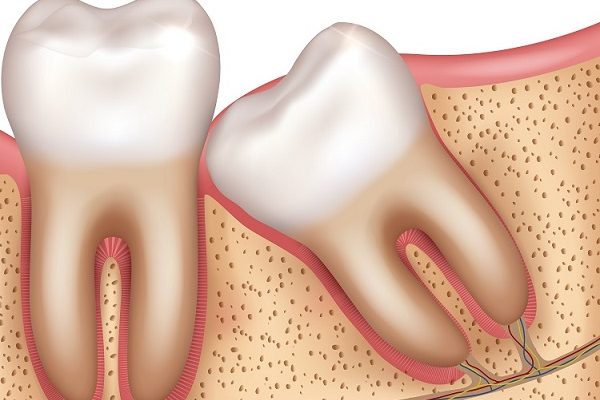What’s with Wisdom teeth:
- Wisdom teeth, also known as third molars, are the last set of teeth to emerge in the mouth. They typically appear between the ages of 17 and 25.
- Evolutionary remnants: Anthropologists believe that wisdom teeth were necessary for our ancestors who had larger jaws and ate tougher foods. However, as human diets changed over time and jaws became smaller, there is often not enough room in the mouth for wisdom teeth to properly erupt.
- Wisdom teeth are prone to becoming impacted, which means they are unable to fully emerge through the gums due to lack of space. Impacted wisdom teeth can lead to pain, infection, and damage to surrounding teeth.
- Extraction: Due to the potential problems associated with wisdom teeth, many people undergo wisdom teeth extraction to prevent issues such as crowding, infection, and damage to other teeth.
- Some individuals never develop wisdom teeth, while others may have one, two, three, or all four wisdom teeth. The number and development of wisdom teeth can vary from person to person.
- Wisdom teeth extraction is a common surgical procedure performed by dentists or oral surgeons. Depending on the position and condition of the teeth, local anesthesia, sedation, or general anesthesia may be used during the procedure.
- Recovery from wisdom teeth extraction generally takes a few days to a week. Patients may experience swelling, pain, and bleeding after the procedure, but following post-operative care instructions can help manage these symptoms.
- Complications: In some cases, complications such as dry socket, infection, nerve damage, or sinus issues may arise after wisdom teeth extraction. It’s important to follow up with your dentist or oral surgeon if you experience any unusual symptoms.
- Dental X-rays are commonly used to assess the development, position, and alignment of wisdom teeth. X-rays can help dentists determine whether wisdom teeth need to be extracted or monitored.
- Consultation: If you have concerns about your wisdom teeth or are experiencing pain or discomfort in your mouth, it’s important to consult with a dental professional for an evaluation and personalised treatment recommendations. Call our Team at Northshore Dental or click the link below to book online.

